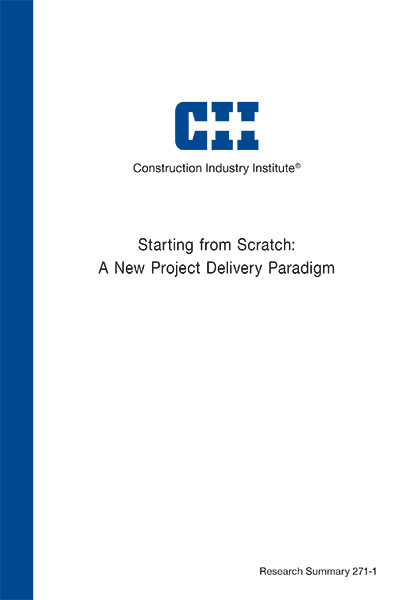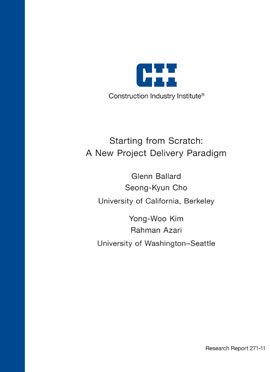
Starting from Scratch: A New Project Delivery Paradigm
Research Team (RT) 271 was established by the Construction Industry Institute (CII) to answer the following question: If the capital project industry did not exist and a new need was created for it, what would it look like? The capital project industry could be different in many ways, including the following:
- Owners could do all, some, or none of the work.
- Contractors could make different offers, as Rolls Royce did when it changed from selling jet engines to selling flight hours. The underlying technology could change; for example, constructed assets could be “printed” rather than assembled from parts and pieces.
- The sequence in which players are brought onto projects could change, as when process equipment suppliers are selected at the beginning of projects. (See the work of CII Research Team 130 to change the EPC process to bring suppliers of strategic procurement items and/or systems into an expanded circle of cooperation between owner and contractor.)
- The industry could change its fundamental business practices and culture, and escape from its seemingly eternally swinging “I beat you up – You beat me up” pendulum.
All of these possibilities (and others) are well worth considering. RT271 chose to focus on culture and process—on the way project delivery systems are designed and managed. Taking this approach, the team found that 1) projects perform better when they more closely approximate an ideal delivery system, and 2) the impact on performance increases with the dynamic character of the projects being designed and managed. The team’s ultimate conclusion is that complex, uncertain, and quick projects perform better when designed and managed in accordance with alignment of interests, organizational integration, and management-by-means (lean) methods.
A high level of organizational integration can be achieved by involvement of all the teams right from the early stages of the project.
Achieving cultural alignment by understanding the cultural complexities and effective project leadership are critical components of organizational integration. (RS271-1, p. 26)

